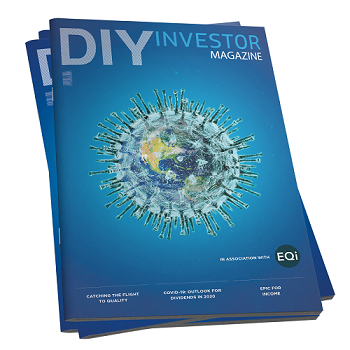What lessons can be learned from the fall of the rock star fund manager?
Website ‘Woodford Litigation’ announced that ‘Woodford investors are suing Link Fund Solutions for their failure to manage the Equity Income Fund prudently’ – writes Christian Leeming.
It goes on to say: ‘Experts predict investors may lose 40-50% of the value of their investment. Around 300,000 investors are said to have been affected, most of whom have lost thousands of pounds since the suspension of the fund in June 2019 as the difficulty the administrators have had in selling the fund’s assets.
So, what lessons can be learned?
Don’t unquestioningly follow star investors
Many bought Woodford’s funds because they assumed that someone with his exceptional track record would continue to be successful; having only a superficial understanding of an investment is always a mistake.
When things turn turtle, a lack of understanding or control can turn into fear, which can have important investment implications; investing should be measured and rational – emotion can cause fearful investors to sell at precisely the wrong time.
‘DYOR’ as the Tweeters would have it - understand the underlying assets the manager is investing in, and if he’s a rock star, that’s a bonus.
Invest for the long term
Woodford’s Equity Income fund delivered annual returns of 20% to mid-2015 vs 6.5% for the FTSE All-Share; this attracted investors chasing short term performance and the fund mushroomed from £1.6bn to £6.7bn in just over a year.
But investors who blindly chase performance often lack that same deeper understanding; with little to go on other than the market price of their investment, when it starts to fall they assume the intrinsic value of their investment is sinking and often bail out, which is what happened.
As the fund plummeted down the performance tables many that bought in on the way up locked in significant losses on the way down.
Buying investments that have recently outperformed and selling those that have recently underperformed is not a sensible long term investment strategy.
Avoid becoming a forced seller
Due to his name and scintillating initial performance, investors flocked to Woodford’s fund; this allowed him to take substantial positions in unquoted private companies, which are hard to buy and sell quickly.
That’s not a problem unless the fund’s investors all want their money back at once; but that’s exactly what they did want when the fund underperformed - a few years of bad results scared investors away.
Prices spiraled downwards causing nervous investors to dump their stock; Woodford couldn’t unwind his illiquid investments quickly enough, and was forced to gate the fund, locking investors in.
The lesson is to only invest money you won’t need to access for a few years; avoid illiquid assets such as private companies or property unless you are sure you won’t need the cash back in a hurry.
In a fire-sale of illiquid assets it is the seller that is likely to get burned.
The wisdom of crowds
Investments go up and investments go down due to a whole range of factors; changes in sentiment shape the market and, by and large, crowds make good decisions.
Timing is important because Woodford’s fund fell in generally rising markets – contrarian investors who stuck with Woodford on the way down may have very good reason to rue their decision to discount the wisdom of crowds.
Read more at
Read the latest edition of DIY Investor Magazine
DIY Investor Magazine
The views and opinions expressed by the author, DIY Investor Magazine or associated third parties may not necessarily represent views expressed or reflected by EQi.
The content in DIY Investor Magazine is non-partisan and we receive no commissions or incentives from anything featured in the magazine.
The value of investments can fall as well as rise and any income from them is not guaranteed and you may get back less than you invested. Past performance is not a guide to future performance.
DIY Investor Magazine delivers education and information, it does not offer advice. Copyright© DIY Investor (2016) Ltd, Registered in England and Wales. No. 9978366 Registered office: Mill Barn, Mill Lane, Chiddingstone, Kent TN8 7AA.

